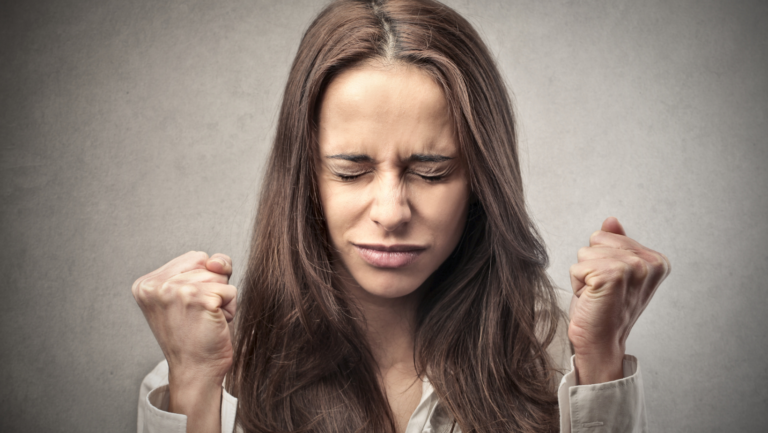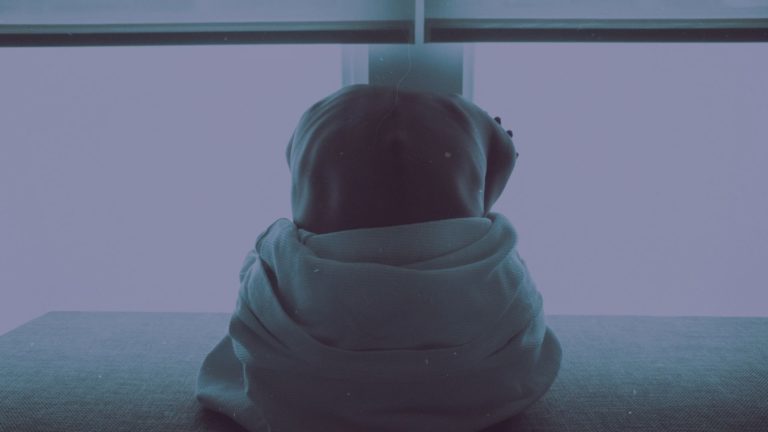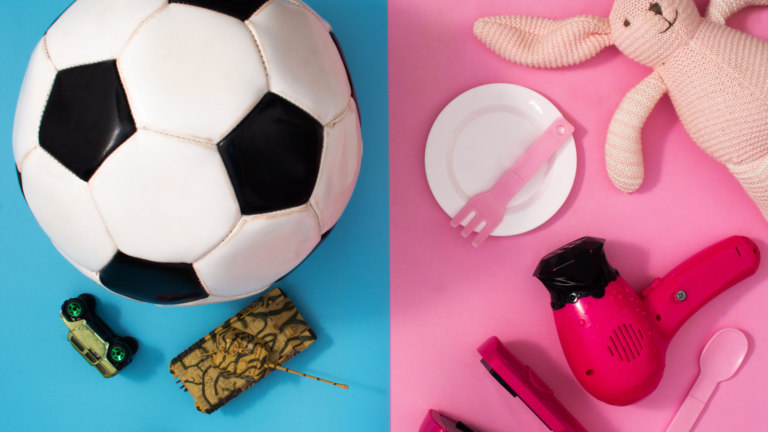In conjunction with Bi Visibility Day in September, we asked Grace* to write about her experience as a bisexual Christian woman committed to a historic sexual ethic.
Growing shame
For as long as I can remember, my sexuality was a rusted hook of shame sitting inside of me. Growing up in church, there was a deafening silence surrounding the subject of female sexuality. If sexuality was talked about at all, it was in reference to men. Why weren’t any Christian women talking about sexuality? Why was it a taboo topic even among my female peers? As a young girl my mind could draw no conclusions other than to equate any and all sexual desires with masculinity. This led to a suffocating cycle of confusion, shame, and feeling isolated. Was I somehow broken? Was sexuality a tap that I was supposed to keep off until marriage, and I had somehow failed to do so? I had nowhere to go with the sexual thoughts and desires I began to develop. My solution was to swallow them, day by day. Because I had sexual desires, I assumed I was more masculine than my female peers, which only caused more shame. I never felt at home in the narrow parameters of femininity dictated by both secular and church culture.
Things only became more complicated when I began to experience attraction toward women. Towards the end of middle school and into high school, I felt a new tension between me and my female peers. A subconscious awareness of an attraction that I had not yet named. This distance I felt between myself and my female peers fed into the growing shame inside of me. All the pushed-away feelings, all the denials of desire, all the silence around this thing that seemed to be an important part of me. I learned to live in silence. However, in high school I had several friends who openly identified as part of the LGBT+ community. God gave me such a love for them, such an appreciation of them, and even though I was never open with them about my attractions, I felt safe around them. I felt a sense of shared struggle and longing with my LGBT+ friends that brought some peace into my heart. This is what was missing in my faith community–a space where sexuality could be talked about openly, without the assumption that all attractions were toward the opposite sex. This assumption only prolonged my struggle, as I had no resources or sisters in Christ who shared my experiences and were able to disciple me.
Right after my high school graduation, and just before I left for my gap year abroad, 49 people were killed at a gay nightclub in Orlando. This event launched an enormous rally of support around the LGBT+ community. I remember watching video after video on YouTube, listening to LGBT+ community members tearfully share their experiences of discrimination, hatred, and their struggle to fully embrace who they are. I was so moved and grieved by their stories. It was the first time I was truly confronted with my own silence around my experiences of same-sex attraction and my desire to reconcile my faith and my sexuality. I couldn’t ignore it this time. The outcry of pain from the LGBT+ community struck a chord deep within me. I felt the cost of my silence, felt the weight of the violence and hatred toward my brothers and sisters. Alongside them I felt the longing to be seen and accepted and to express sexuality freely. I longed to be truthful in the way I thought about and identified myself. I longed to claim my place as a bisexual woman, but I felt suspended between my faith and my sexuality, which had been a confusing, shame-fed secret for too long.
As a fresh high school grad about to embark on my gap year abroad, God seemed to say to me, “This is enough for you. We’ll revisit this another time.” I didn’t feel the need to push my sexuality away, but my heart and mind were consumed by the year ahead of me. Sexuality, like everything else in our spiritual journeys, is something that God walks through with us, gently and patiently. He led me, slowly, steadily, convincing me of His goodness and His design, and most of all, His boundless love for me. It was only as I grew in understanding of the radical love of our Father that I began to wrestle with my sexuality. It was not through theological debate, nor through validation of my every sexual feeling, that I found peace in my sexual identity; it was only in His love. But sexuality was a hard topic to avoid. Only a month into my gap year, Euro Pride was in full swing. I couldn’t walk anywhere without seeing rainbow flags and flamboyant parades. In the Christian community I was living in, we had many discussions about sexuality. In my heart, I felt caught in the middle of it all. How could I express my not-so-straightforward sexuality to my Christian friends? Could I trust my female friends with this burden, or would they want to keep their distance? While I had many safe, deep, loving relationships in that community, and some that would become the much longed for, much prayed for spaces to unravel years of shame, I still felt God asking me to wait. But when at last He opened the eyes of my heart to see my truest identity, as His beloved, He set me free to wrestle with this particular piece of me: my sexuality.
Is my experience valid?
Naming has so much power. For a long time, I struggled with the term “bisexual.” I was conflicted about identifying myself using a secular term when I felt, truly and unwaveringly now, that my identity was bigger than my sexuality. I choose to use the word “bisexual” to describe my experiences with sexuality, particularly as a woman who grew up in the church. The implied expectation from many church communities that all sexuality falls under either heterosexual or homosexual left me with no way to name my experiences. For me, “bisexual” creates a space in which I can comfortably communicate the complexity of my experiences to Christian communities. The struggle in secular communities is the idea that everyone is bisexual, at least to some degree. In many ways, this idea makes me feel invalid. The term “bisexual” brings me a sense of relief, an assurance that I am not alone in my experiences. I believe that bisexuality is an often dismissed experience, and one that deserves to be recognized and validated by both Christian and secular communities.
I also struggled with a constant sense of invalidity because I am primarily attracted to men. I feel like my experiences and struggles have been, in some ways, easier to navigate. I can easily hide my same-sex attraction since I am attracted to men, have dated men, and if God wills it, would like to marry a man. Next to my LGBT+ brothers and sisters who cannot hide their attractions, my experience has felt much less burdensome. There are parts of their experiences I will never fully relate to, and because of this, I struggle to fully embrace my sexuality. I do not feel that I have earned my place amongst those who have faced immense struggle with their sexual identity both internally and externally.
I have also at times felt invalidated by Christians when I share my experiences. Instead of listening to my experiences, Christians have often diminished and rationalized my attractions. A well-meaning mentor once asked if I knew the difference between recognizing a woman’s beauty and being attracted to her. I assured her I did, but I felt that my attraction was dismissed as simply a phase. Similarly, as a Christian who identifies as bisexual, I have often felt swept under the rug. I have experienced church communities that address sexuality in a gracious and truth-filled way, but the experiences of bisexual people are too often left out of the conversation. The church seems to be fixated on sexual identity in the binary sense of straightness or gayness, but my experiences did not fit neatly into either category. I did not have a framework in which to think about, name, or steward my sexual identity, and this led to an even greater sense of isolation from both the church and the LGBT+ community. I struggled with feeling stuck in the middle of what seemed like opposing attractions, sexual ethics, and communities.
Church: the safe place
I have come to a place of peace about using the word “bisexual” to describe my experience. For me, it creates a bridge, a common ground between the reconciliation of my faith and sexuality and the secular world’s understanding of sexuality. I think language is a powerful tool to relate to those around us, especially to the LGBT+ community. The term “bisexual” encompasses the confusion and struggle I have experienced in my sexuality, and this is important. It is difficult, perhaps even impossible, to grapple with a particular struggle or experience without having a name for it.
My prayer, and sincere hope, has always been that the Church will be not only one safe place to talk about sexuality, but the safe place. So much harm was done in my own life, not to mention the lives of countless other young men and women, whether gay or straight or somewhere in the hazy in-between, simply through silence. The Church’s silence on sexuality, or refusal to acknowledge experiences outside of heterosexual attraction, is a powerfully damaging thing. For me, allowing myself to identify as bisexual was a liberating act. I have found reconciliation between God’s good and holy design for sexuality and the freedom He has given me to be fully myself.
Equip works on behalf of Grace* and others like her, helping churches become the safe place to talk about sexuality. Take part in our mission by giving toward the work, or joining the prayer team.
*not her real name






